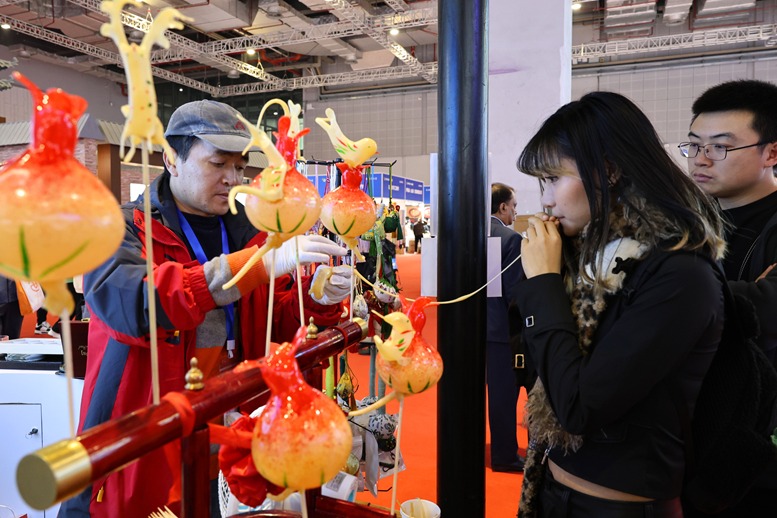Lithuania to further tap Chinese meat and dairy market


Despite China's slowing economic growth, Lithuania's Minister of Agriculture remains optimistic on growing trade, and wants to tap China's robust consumption market.
"We see China as a reliable long-term strategic partner, and we are eyeing more exports to China in the meat and dairy sectors," Giedrius Surplys, minister of agriculture, said in an interview with China Daily.
As a major trade partner of Lithuania in Asia, China's total imports from the country hit $260 million in 2017, up 55.6 percent year-on-year, while bilateral trade hit $1.86 billion, up 27.5 percent year-on-year. The figure is expected to grow as the two countries deepen their trade relations.
"We have a rather high expectation on China's consumption power, and we think there's a huge demand for our agri-products like beef, pork, poultry, cheese and some niche products such as healthy instant comfort food," he noted.
To better tap the Chinese market, Surplys said his teams have been doing research on local consumers' tastes.
"It is interesting to notice that there is a huge need for healthy instant comfort food like meat sticks and dried vegetable soup in China. Our guess is that as many Chinese consumers are busy with their work, many of them have little time for cooking. However, there are rising concerns over health issues in China, which is pushing them away from traditional instant food like instant noodles but drawing them in for healthy instant comfort food," Surplys said.
The comments came after the two countries signed a cooperation framework last year-the Act Plan on Agricultural Cooperation between the Ministry of Agriculture of China and the Ministry of Agriculture of Lithuania 2018-2020. The agreement was designed to further promote bilateral trade and cooperation in the agricultural sector.
"I would say that this plan has profited both countries," Surplys said, adding that he is confident there will be a three-year trade boom.
Right now a total of 17 Lithuanian dairy producers have been authorized to export dairy products to China, thanks to the joint efforts from both sides. Surplys said Lithuanian producers are also interested in gaining access to new markets such as beef, poultry, and grain products.
"Besides, China is now seeing a consumption upgrade as more consumers are seeking healthier and fancier lifestyles. The trend will provide more opportunities for Lithuanian producers," Surplys said.
His confidence in Chinese consumers' spending power seems well-grounded, given increasing voices that China is relying more on consumer spending to boost its economy and reduce its dependence on investment and exports, a way to tackle the country's slowing economic growth as external challenges endure.
"The year of 2019 is likely to see more policies from the government to encourage consumer spending," predicted Yang Cuihong, deputy director at Center for Forecasting Science at the Chinese Academy of Sciences. Predictions from the center said consumption is estimated to contribute 4.7 percentage points to China's GDP growth rate in 2019.
The central government of China has already rolled out a series of incentives in a bid to boost consumption. Measures include a cut on personal tax giving citizens more spending power, and a drop in retail prices for car and home appliances.
Despite efforts to boost consumption, there are reports saying that increasing household debts and ongoing trade tensions with the United States might influence China's market expectation and lead to slower consumer spending.
However, data from the National Bureau of Statistics said otherwise.
China's retail sales-a measurement of consumer spending-increased 9 percent year-on-year to over 38 trillion yuan ($5.64 trillion) last year, making it a driving force to China's GDP growth, which came in at 6.6 percent last year.
"Consumption has contributed at least 75 percent to China's GDP growth for the last five consecutive quarters, despite slowing since the second quarter of 2018. Going ahead, consumption will become a major incentive to boost China's economic growth," said Zhou Wenqun, a manager at consulting agency Fidelity International.




































